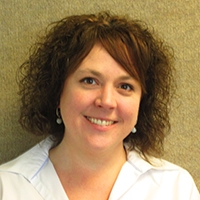Analyzing Medication Administration Times Moving Forward: Gain Workflow Efficiencies and Resident Safety
While evaluating and optimizing medication administration practices are especially important in the short term to prevent transmission of COVID-19, in the long term, these strategies help make workflow more efficient, medication regimens safer for residents, and prevent the spread of other microbes overall.
Consolidating Medication Administration: To help determine the most efficient strategy in administering medications, analyze the way in which a resident’s medications are currently administered. Look for ways to reduce the number of visits to the resident which require direct or very close contact (such as medication administration), thereby allowing time for other care related tasks or socialization opportunities as well as reducing pill burden for residents.
Flex Time Administration: For medications that do not need to be administered at very specific times, consider switching to a flexible medication administration schedule or the universal medication schedule to minimize the number of medication passes per day. These schedules allow for more flexibility in administration of medications throughout the day for the nursing staff and are generally more resident-friendly.
For example, under the universal medication schedule, the directions “take one tablet twice daily” may become “take one tablet in the morning and one tablet at bedtime”. Medications with directions written according to the universal medication system at a certain time of day can then be given together in one administration time rather than at separate, specific times.
For example, a medication that was originally scheduled to be administered at 10:00 AM and another scheduled to be administered at 9:00 AM can be given at the same time “in the morning”, as long as there are no interactions or restrictions. This reduces the number of medication passes from two to one.
Assess for Unnecessary Medication: As mentioned previously, it is important to actively and continuously work with other healthcare professionals on your team to make sure the resident’s medication regimen does not have any unnecessary medications. Reducing the amount of medications in a resident’s regimen in turn reduces the frequency of administration times.
Eliminating unnecessary medications not only minimizes transmission of microbes, but also minimizes the opportunity for medication interactions and adverse effects. Unnecessary medications may complicate medication regimens and increase pill burden. The more medications in a resident’s regimen, the more chance of a resident experiencing adverse effects and potential medication interactions.
Prevention is an Outcome: in the older adult population, medication management can go a long way in preventing falls, potential visits to the emergency room, and reducing costs.
The above medication management and administration strategies can help reduce transmission of microbes and allow for efficient and safe medication administration overall. Grane Rx consultant pharmacists can help implement these strategies as they have the ability to analyze your facility medication pass distribution and resident pill burden to help balance and optimize the efficiency of medication administration.
